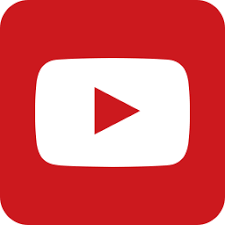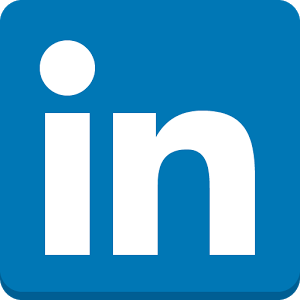Our Influencer Marketing SaaS Works With 13,000+ Influencers ($50K/Month)
Hello! Who are you and what business did you start?🔗
I'm Yash Chavan. I'm the founder of SARAL. I am a marketer at heart who dropped out of engineering college to work in sales and eventually fell in love with growing SAAS companies.
SARAL is an influencer relationship management platform for E-commerce businesses to find, reach out, manage, and track the performance of the influencers they work with. We’re a bootstrapped company from Mumbai, selling to US-based brands.
It gives you everything you need to succeed with influencer marketing. We built SARAL because we wanted to democratize access to influencer marketing for brands and we made sure to keep influencer marketing simple for brands.
My vision is to help build long-term meaningful relationships between brands and influencers that lead to profit for both parties. Our user base is now over 200 paying brands who actively use SARAL to run their influencer campaigns. They work with over 13,000 influencers!

What's your backstory and how did you come up with the idea?🔗
My journey towards creating SARAL began with my work with clients when I used to run a marketing agency. After dropping out of engineering college, I started freelancing and eventually landed some sales jobs at early-stage startups. That’s where I was exposed to the cold world of cold calling and closing 1:1 sales. It gave me the foundation needed to eventually get into marketing. Marketing was more interesting as it was one-to-many (unlike sales which is 1-to-1).
When it comes to making smart choices, our profits come from a combination of many small, well-informed decisions. We haven't had a single "aha moment” that changed the way we do business, but staying close to our customers has always helped us do well.
With Facebook ads reducing in effectiveness after the iOS 14.5 privacy updates, my agency was heavily involved in influencer marketing. We changed our focus to influencer marketing to keep up with the recent changes, and it worked out well.
We managed programs with over 10,000 influencers, but the process was entirely manual, which became overwhelming for me and my team. We searched the market for tools to streamline our influencer marketing efforts but we found out that existing options were both expensive and too old. This frustration led to my "aha" moment, realizing there had to be a simpler, more affordable, and user-friendly alternative. That's when I decided to create Saral.
My background in influencer marketing from my previous work experience in the marketing agency allowed me to recognize the pain points and inefficiencies in the influencer marketing industry and gave me the confidence to pursue the idea of Saral.
To validate the concept, we conducted market research by reaching out to potential users through email and LinkedIn. I cold-emailed close to 2500 people in my target customer segment during this time. I got on ~35 calls with founders and marketers in the ecommerce space to simply talk about their problems and frustrations around the influencer marketing space (no selling here).
Additionally, I pre-sold the product to five early adopters who paid $99 each, demonstrating that there was a genuine demand for such a solution before we even began building it.
Take us through the process of building the first version of your product.🔗
Building the first version of our product was a dynamic process. I started with a Figma mockup, collaborating closely with a designer to lay out the initial user interface. Once the mockup was in place, I reached out to our market over email or LinkedIn and asked them questions about how they were doing with influencer marketing. We got five people who believed in us and bought the product even before it was launched.

To turn our concept into reality, I decided to work with a dev agency. The reason why I hired a dev agency versus building an in-house team to start, was because hiring an in-house person would have cost me two months of time, which I did not have at that point.
I wanted to quickly build and launch the product because obviously, I had taken the customers' money, and I had promised them that I'd deliver the software in three months so I had no choice but to go with an agency. The dev agency allowed us to start development immediately while we planned to hire in-house while the product was being built.
After hiring the agency to build the product, we attempted to hire an in-house developer, but it didn't work out within the first two weeks, so I had to let that person grow. Then, funnily enough, someone reached out to me on LinkedIn from my network, showing an interest in our product. This guy was a developer, so we talked, and fast forward to today, he's the head of engineering at SARAL. So that just kind of happened. I guess when you take action, things align in your favor.
I still had the agency running behind the scenes doing influencer marketing for clients. That is what took us through the initial build of the SaaS. I eventually sunsetted the agency, offboarded clients, and baked the influencer marketing service piece into the SARAL product business as a done-for-you upsell. I think adding services to your stack of pricing, especially if you know how to best use your tool, would be a great way to fund your SaaS business if you’re looking to start one!
Describe the process of launching the business.🔗
We launched and introduced our product to the market before it even existed. This approach yielded great results as we managed to secure pre-sales from interested customers.
What set our strategy apart was not just pre-selling the product but offering customers an exclusive introductory pricing of $99 per month, which later increased to $299. Right now it’s $299 but back then, when we were starting, it was $99 a month.
I gave them the offer that if they pay me $99, I will offer them two months of the product once it is live. Plus, I provided a bonus, which was a consulting feature. This served as a dual-purpose incentive: it encouraged early customers to sign up and also provided a channel for gathering valuable feedback from the customers. I placed that on the landing page and then that's how I presold it.
The launch was complicated and had some delays because the product ended up being way more complicated than I had initially anticipated. The beta version was live in September and then the final version, the one I was happy with, which I called the MVP, was live in December when we got our first actual paying customer for the software.
A lot of founders mess up because they don't know their marketing and don't interact with customers. I’m on calls with customers almost every day. Learn to understand people’s problems intimately so you can solve them with your business.
Since launch, what has worked to attract and retain customers?🔗
One thing that helped us to attract and retain our customers was publishing content on our website. We wrote our first line of content before we wrote our first line of code. The blog became a significant source of inbound traffic, as it resonated with our target audience and provided insights into the motivation behind our product.

It took a while for organic traffic to roll in (and we still only rank on pages 2-3 for most keywords), but it’s slowly growing. Another crucial thing is to distribute your content all across the internet. Remember that SEO is just ONE out of many distribution channels available. We crosspost our content on forums, Reddit, groups, and more!
Word of mouth also played a substantial role in our customer acquisition strategy. Our product's quality and effectiveness led to satisfied customers spreading the word. This organic growth resulted in an expanding user base. About 30% of our customers come from referrals right now!
Check out the SARAL Customer Loveto see the actual thoughts and feedback from the users of SARAL.
How are you doing today and what does the future look like?🔗
Yes, we are profitable. Our operations are pretty simple. We are a remote distributed team all across the world. Majority of the tech team is in India, some of my team is in the Philippines, and a couple of people are in Romania. We're fully remote, asynchronous, and distributed. We plan to remain this way.
The team is a total of 12 people today across departments like tech, marketing, product, and customer success. We hired to solve bottlenecks in the business. Eg: If the tech team is lagging on a lot of features, we know that more hands would help.
Similarly, if support is overwhelming me as the founder, I probably need to hire a customer support person. This is the best way to make hiring decisions, in my opinion, instead of relying on vague rules like “hire your first marketing person when you hit $10k MRR”
Through starting the business, have you learned anything particularly helpful or advantageous?🔗
One critical takeaway is the importance of diligence in hiring. Hiring the right people is a significant investment for a founder, and rushing into hires can lead to costly mistakes. Early on, I made the error of not conducting thorough vetting calls and interviews to ensure that the hires were a good fit for the type of work required. So the lesson here for the audience is: Don’t hire fast. Take it slow and run a proper process.
When it comes to making smart choices, our profits come from a combination of many small, well-informed decisions. We haven't had a single "aha moment” that changed the way we do business, but staying close to our customers has always helped us do well. Our customers trust us, which makes us stand out from other businesses in the same industry, known for shady long-term contracts and transactional sales processes
External factors that have influenced our journey include industry trends. Influencer marketing has been popular lately, which has caused a lot of new tools and solutions to come out in the space. But following trends isn't enough to guarantee success; the product itself is what counts.
I think that living a simple and organized life has helped me develop some helpful habits and skills. Doing things like martial arts has made me more disciplined, persistent, and tough, all of which have been very helpful to me. I believe that physical activity, especially martial arts, can benefit not only founders but anyone looking to enhance their resilience and discipline.
What platform/tools do you use for your business?🔗
We use Notion as a centralized place where all of us work. It truly helps as an async company. Another tool I use for personal productivity is called Sunsama, I highly recommend it to other founders.
My favorite CRM is Close and our website is built in Webflow.
All the tools we use every day are great SaaS companies which is a constant reminder of the standard we strive for at SARAL.
What have been the most influential books, podcasts, or other resources?🔗
Given my experience with martial arts, I like to draw parallels between sport and business. They’re very similar if you think about it. With that context, I’ll recommend one book for the readers: Relentless by Tim Grover.
Tim was the coach for Basketball legends like Michael Jordan and Kobe Bryant. In the book, he shares a lot of lessons on what it takes to be at the top of the sport. Founders can learn a lot from the insights in this book.
Advice for other entrepreneurs who want to get started or are just starting out?🔗
A lesson I’d like to share, especially with new founders, is that it's important to be flexible and stay close to your market.
A lot of founders mess up because they don't know their marketing and don't interact with customers. I’m on calls with customers almost every day. Learn to understand people’s problems intimately so you can solve them with your business. Having a surface-level understanding doesn’t help (in fact it may lead to failure)
Are you looking to hire for certain positions right now?🔗
We’re always hiring. Right now we’re looking for people in marketing, sales, and tech. If you’re a talented backend engineer or marketer, hit me up. At SARAL, our core values are that of Customer Obsession, Self-Agency, Having a Bias for Action, and First-Principles Systems Thinking.
If these values resonate, please reach out! You can send me an email at yash@getsaral.com
Where can we go to learn more?🔗
You can check out these pages if you want to reach out and learn more about SARAL:
If you have any questions or comments, drop a comment below!

Download the report and join our email newsletter packed with business ideas and money-making opportunities, backed by real-life case studies.

Download the report and join our email newsletter packed with business ideas and money-making opportunities, backed by real-life case studies.

Download the report and join our email newsletter packed with business ideas and money-making opportunities, backed by real-life case studies.

Download the report and join our email newsletter packed with business ideas and money-making opportunities, backed by real-life case studies.

Download the report and join our email newsletter packed with business ideas and money-making opportunities, backed by real-life case studies.

Download the report and join our email newsletter packed with business ideas and money-making opportunities, backed by real-life case studies.

Download the report and join our email newsletter packed with business ideas and money-making opportunities, backed by real-life case studies.

Download the report and join our email newsletter packed with business ideas and money-making opportunities, backed by real-life case studies.








